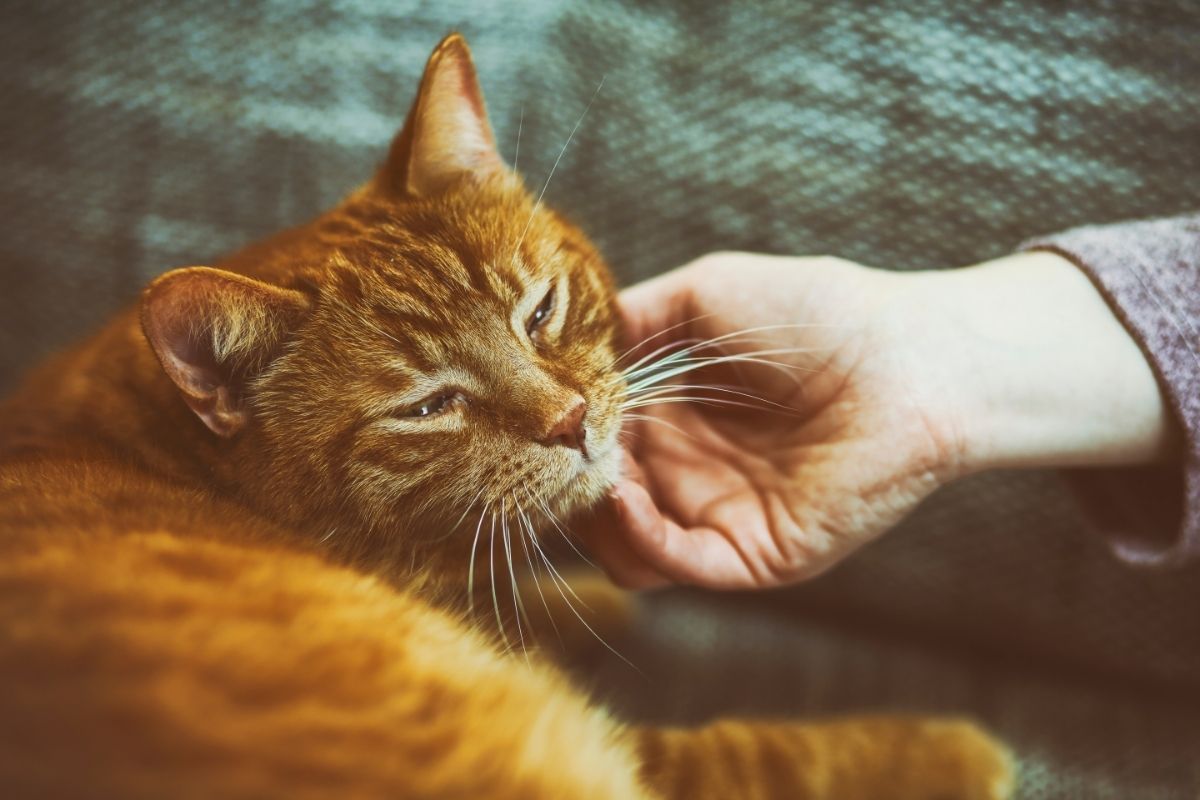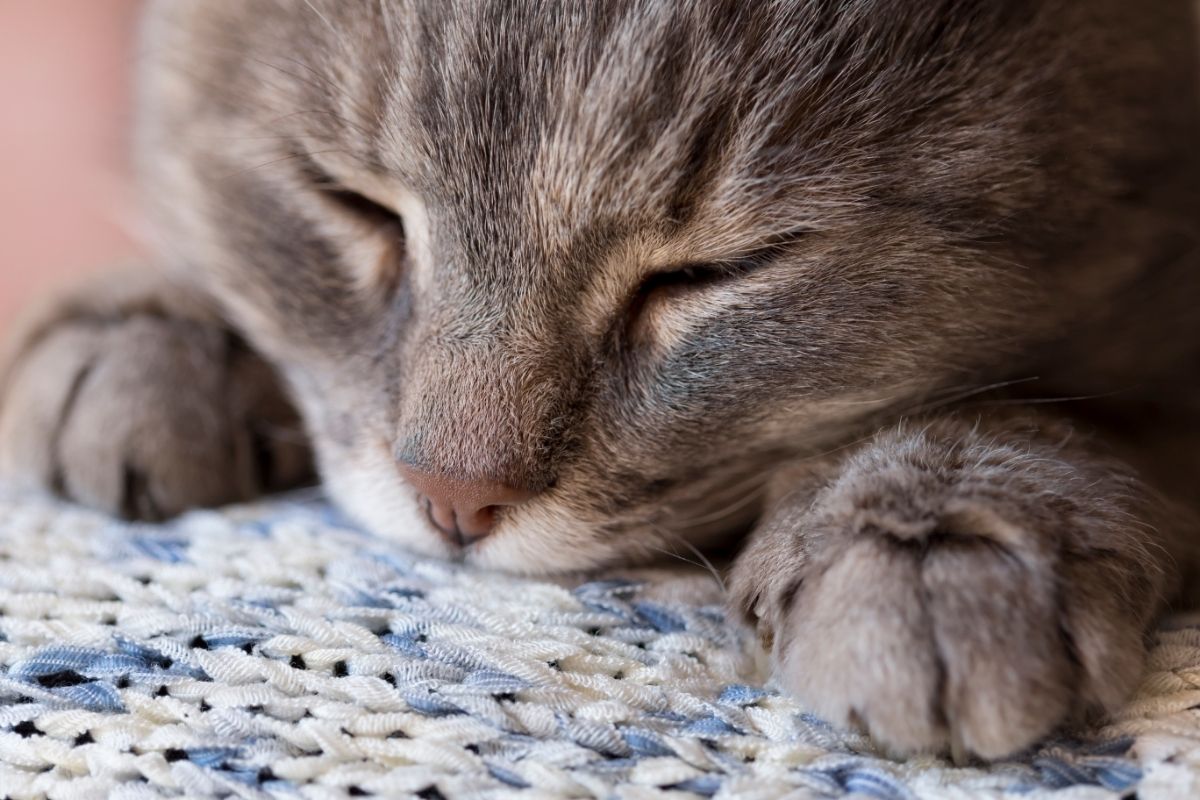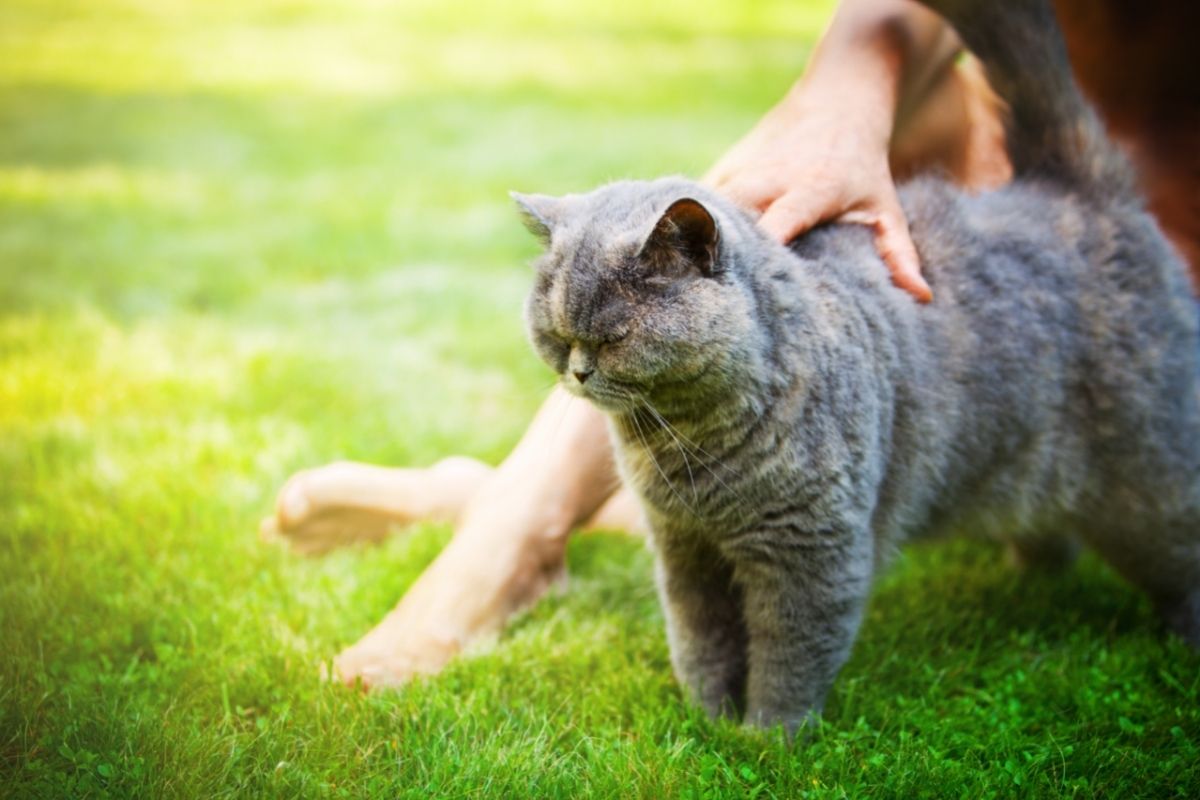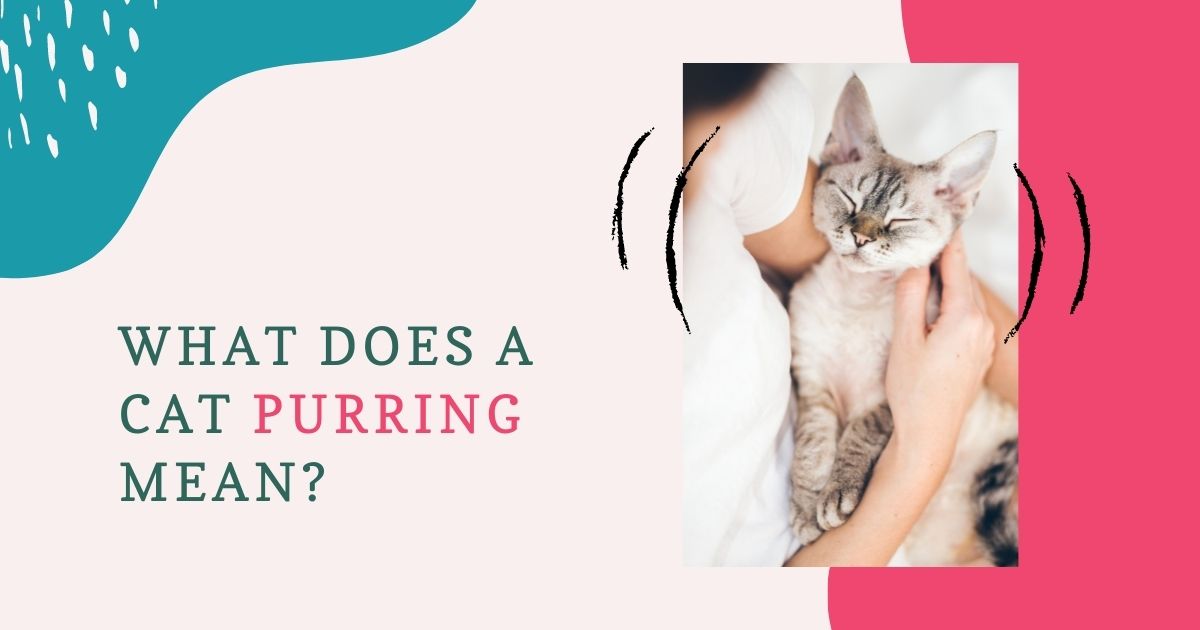When a cat purrs, it’s hard not to feel good. The sound is soothing, and it makes you feel relaxed and happy. What does a cat purring mean, though? Why do cats purr? What makes a cat purr?
Cat purring occurs when a cat breathes in and out, producing a vibration that sounds like a purr. It is one of the most distinctly recognizable traits of a cat. Cats purr for various reasons, from expressing happiness to controlling their body temperature.
To help you better understand your feline friend, we’ve looked into just what makes a cat purr and what different meanings these purrs can have. So let’s take a closer look!

Why Does a Cat Purr?
There are a variety of reasons why cats purr. Here are some of the most common reasons:
Happiness
Cats often purr when they are happy and content. This may be when they are being petted, scratched, or sitting in their owner’s lap.
Relaxation
Cat purring can also be a sign of relaxation. When cats feel safe and content, they may purr to express their joy.
Communication
Cats also purr when they are distressed or nervous. This can be a way for them to calm themselves or communicate with other cats.
Health and Healing
Cats have been shown to purr at a frequency of twenty-five to fifty Hertz. This frequency is beneficial to their (and your) health and healing, promoting bone growth and helping wounds heal faster.
Anxiety
There are some instances where a cat purr can indicate anxiety. One example is when an outdoor cat who has made its way into the house wants to go back out. This can usually be recognized by the insistent meowing and increased activity levels, but sometimes the cat will purr instead.
Temperature Control
Cats, especially those with a thick coat of fur, may purr as a means to control their body temperature. They have been shown to do this more often when they are in warmer conditions.
How Does a Cat Purr?
Cats do not have vocal cords, so they cannot produce sound the way humans do. Instead, they vibrate their larynx and diaphragm to create a purring sound. This can be a sign of good health since only healthy cats have the strength and coordination to produce such a noise.
If you want to try imitating a cat purring sound, simply exhale and make your voice as quiet as possible. Then tighten your diaphragm to produce the vibration.
When cats purr, they will also typically move their heads and bodies in a way that looks like they are “hugging” themselves. This can be a sign of contentment and happiness.

What Does a Cat Purring Mean?
Now that you know how and why cats purr let’s look at some different meanings these purrs can have.
Comfort
If a cat purrs while being held or petted, it may be trying to comfort you. This is especially true if the cat is also licking you.
Love and Affection
Cats may also purr as a way to show their love and affection for their owners. This is often seen when a cat rubs up against its owner or sits in its lap.
Appeasement
Cat purring can also be a way for cats to appease. For example, if two cats are fighting and the other cat starts purring, it is trying to calm the situation.
Self-Groomer
If a cat is grooming itself or receiving self-grooming from its owner, it may also produce a soft purr. This is most often seen in long-haired cats as they lick their fur and remove knots. Read our article and find out how to stop your cat from OVERgrooming.
Anger
In some cases, a cat purring sound can signify anger. This usually happens when a cat is hissing or arching its back. The purr may signify that the cat feels aggressive and about to attack.
What Makes a Cat Purr?
Several things can stimulate a cat’s purring.
Touch
The act of petting, scratching, or massaging your cat can cause them to purr. This may be because it is pleasurable for the cat or because they are trying to comfort you.
Hunger
Cats also purr when hungry, especially when they are young. This is a sign that they want their mother to feed them.
Distress, Pain, and Sickness
Some cats will purr when they are in pain, have an injury, or become sick. This is sometimes a way for the cat to deal with its anxiety about being hurt or ill. In other cases, it may respond to pain relief when humans are giving them medication.
Fear
Cats also purr in the presence of danger or things that they perceive as threats. This is usually seen when they meet new people or are approached by someone who frightens them. It can also happen when the cat is unsure of an object, such as a strange piece of furniture in the house.
Do Cats Purr When They are in Pain?
Yes, cats will sometimes purr when they are in pain. This can be a way for them to deal with their anxiety and discomfort. In some cases, it may also respond to pain relief when humans are giving them medication.
Cats purring has been shown to speed up their recovery process. Vibrations caused by the low-frequency purrs may heal bones and wounds, stimulate tendons, decrease pain and inflammation, and ease breathing. This may explain why cats are better at dealing with pain than many other animals.
Doctors recommend that if a cat is purring when in pain or distress, you should keep it safe and secure until the problem can be resolved. If they are purring in fear or anger, you should seek to resolve their fear with a combination of your calm demeanor and soothing touch.
Reasons for Cats Purring
Cats Purr in many situations due to physical or emotional stimulation. Knowing the meaning of a purr can help you understand if your cat is comfortable, content, happy, hungry, frightened, or in pain.
A happy cat may purr when they are being petted or groomed. They also sometimes purr when they are about to be fed or when they are being held. A purr can also indicate that a cat feels affection and is attached to its family.
A comfortable or contented cat will often purr while resting, especially if it has just eaten.
Kittens sometimes purr when nursing from their mother or bottle-feeding, which signifies contentment and nurturing.
When a cat is in pain, it may purr to deal with the discomfort. Some cats will also purr when they are afraid or in the presence of a threat.
When a cat is feeling threatened or stressed, it may start purring to try and calm the situation.
Cats also purr when they are giving birth, after eating, and when they have been neutered. It has been suggested that the cat purring sound may relate to their nervous system, as some cats will also purr when they are in distress.
Cats also purr when given medication for pain relief, so the sound may be a way of self-soothing and dealing with physical stress or discomfort.
This low-frequency purring is beneficial to the cat’s overall health and well-being in most cases. Knowing what your cat’s purring means can help you understand them better and provide a more enriched environment for them.
Do All Cats Purr?
No, not all cats will purr. Some cats, especially older ones or those with disabilities, cannot make the sound.
Some breeds of cats are more likely to purr than others. These include Bengals, Chartreux Cats, Maine Coons, Norwegian Forest Cats, Sabercats, and British Shorthair Cats.
Cats only purr when their mouth is closed. They also have a unique ability to make sounds in the ultrasonic range, which is inaudible to humans.
The purr frequency ranges from 25 Hz to 150 Hz, with an average of around 40 Hz. As a result, this low-frequency noise may be felt more than it is heard.
When a cat purrs, its vocal cords open and close as it breathes in and out. This is what creates the vibration that we hear as a purr. Unfortunately, kittens cannot purr until they are around four weeks old.
The ability to purr is thought to have developed as a way for cats to communicate with their kittens by identifying themselves as the parent. Purring is also a way for cats to signal that they are not threatening other animals.
Cats from the Panthera genus could purr, including lions, tigers, and leopards, but recent evidence has shown that other species can also make this sound. In addition, it has been observed that some wild cats, such as cougars and cheetahs, have the ability to purr.
In addition, smaller wild cats, including bobcats and lynxes, have also been recorded making this sound. Other small wild felines may make a similar noise or develop this trait over time.

Why Does My Cat Purr and Then Bite Me?
Cats will often purr when they are in a calm situation. If you have been petting your cat and then suddenly feel teeth sinking into your hand, it can be surprising.
This behavior is because the purring sound has a frequency of 25 Hz, which means there is a certain level of vibration that carries throughout the cat’s body. With this in mind, the purr may be sending an invitation for you to pet your cat.
If you respond by petting them, they will continue to purr because it feels pleasurable. However, if they suddenly start biting or feel that their personal space is being invaded, it can cause the muscles in their jaw to seize up.
When they bite down, immense pressure is created, which can cause them pain. This means the cat may stop purring because of the stress and tighten its jaw instead. The vibration in their body will decrease significantly because they are no longer purring but biting.
If this happens to you when petting your cat, it is a sign that you should stop and let them calm down.
However, cat purring does not mean that the purr itself is a predatory sound. For example, cats may purr when they are eating or drinking because of the calming sensations they create. This means that the purring noise has different meanings depending on the context in which it is used.
Conclusion
Cats have a wide range of different sounds they can make, and the purr is one that we can interpret. The information we’ve shared here will help you better communicate with your pet, so you can build a stronger relationship together.
Much more research is needed around this particular sound, but it certainly has several implications that we are still exploring. In the meantime, enjoy spending time with your feline friend and observing their unique behaviors!
Did you find this information useful? Do you have any more questions about what a cat purring means? Leave a comment below, and we’ll get back to you as soon as possible!


3 thoughts on “What Does a Cat PURRING Mean?”
Comments are closed.